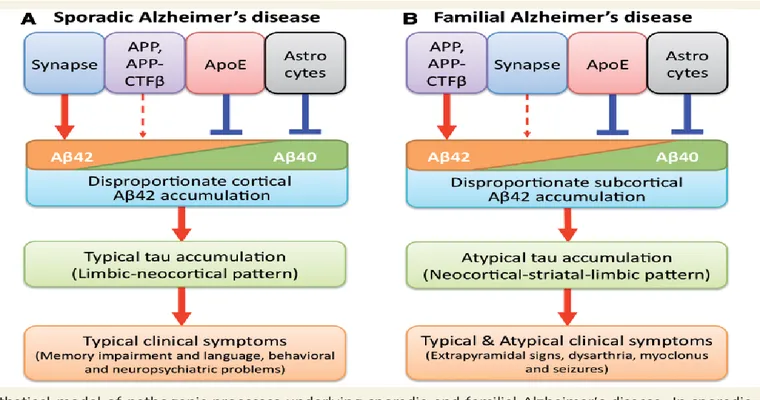"Familial Alzheimer's Disease" is a rare form of Alzheimer's that typically runs in families, affecting multiple generations. Unlike the more common sporadic Alzheimer’s, which can occur without a family history, familial Alzheimer's is directly linked to genetic mutations. This form of dementia is caused by inherited genes that significantly increase the risk of developing the disease, often leading to earlier onset. Understanding familial Alzheimer's is crucial for those with a family history of the condition, as it can inform their health decisions and caregiving strategies.
Familial Alzheimer's Disease is primarily caused by mutations in three specific genes: "APP", "PSEN1", and "PSEN2". These genes are responsible for the production of proteins that play a key role in the formation of amyloid plaques, a hallmark of Alzheimer's. Individuals who inherit these mutations are at a much higher risk of developing symptoms, often in their 30s, 40s, or 50s, compared to the typical onset age of sporadic Alzheimer's, which usually occurs after the age of 65.
The symptoms of familial Alzheimer's are similar to those of other types of Alzheimer's but can manifest at a much earlier age. Early signs may include memory loss, difficulty in problem-solving, and challenges in completing familiar tasks. As the disease progresses, individuals may experience increased confusion, changes in personality, and difficulty with language. Recognizing these symptoms early can be critical for seeking diagnosis and treatment options.
Genetic testing is available for those who may be at risk for familial Alzheimer's Disease. This testing can identify whether an individual carries the genetic mutations associated with the condition. However, the decision to undergo genetic testing is personal and should be made with careful consideration and counseling, as it can have significant emotional and psychological implications.
Families affected by familial Alzheimer's Disease often face unique challenges, including planning for the future and navigating the healthcare system. Support groups and resources are available to help families cope with the emotional and logistical aspects of caregiving. It is essential for caregivers to educate themselves about the disease and to seek support from professionals who understand the complexities of familial Alzheimer's.
In conclusion, familial Alzheimer's Disease is a genetic condition with profound implications for affected individuals and their families. Understanding the genetic basis, early symptoms, and available resources can empower families to make informed decisions and seek support as they navigate this challenging journey. If you have a family history of Alzheimer's, it may be beneficial to consult with a healthcare professional to discuss your risks and options.





